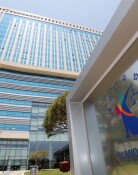Parties Have Trouble Finding Candidates
Parties Have Trouble Finding Candidates
Posted January. 21, 2006 03:01,
In the face of the upcoming May 31 local elections, Uri Party and Grand National Party (GNP) officials in charge of searching for political talent say they are exhausted. People who they ask to join their parties usually say no, while their fellow party members are not happy with their lack of success in attracting new candidates.
Ill Think about It-
Rep. Kim Hyuk-gyu, who recently resigned as the head of the ruling Uri Partys talent attraction team, confessed that he used to recruit former CEOs as major provincial governor candidates, but that he had been seen as a nuisance.
All the figures he met, including Vice Chairman Yoon Jong-yong of Samsung Electronics, President Lee Hak-soo of Samsungs Corporate Restructuring Headquarters, Vice Chairman Kim Ssang-soo of LG Electronics and President Moon Guk-hyun of Yuhan-Kimberly rejected his suggestions, saying, I am willing to meet any of your demands, but I dont want you to say anything about running for election.
Things were the same for other potential candidates that the Uri Party contacted. It took a long time to persuade them and get the reply, I will think about it, but none of them actually took the next step.
An Uri Party official involved in scouting for talent said, Honestly, I was even afraid to tell them to join our party. The general analysis in and out of the party is that this is happening because the governing partys approval ratings in public opinion polls is only 20 percent, and it is widely thought that the party is bound to be an underdog, even in the local elections.
Another factor attributing to the sluggish scouting process is that it is not as easy as it was in the past to attract talent by guaranteeing posts in the government or in sub-governmental organizations in the event a candidate loses an election.
Similar Difficulties for the Opposition-
Chairman Kim Hyung-oh of the GNPs talent invitation committee was quite similar in his complaints about the difficulties of attracting talent. He faced strong resistance from intra-party candidates when he suggested inviting an outside figure as a candidate for either the mayor of Seoul or the governor of the Gyeonggi Province on January 19.
Chairman Kim said, I secretly visited Jeolla Province, a vulnerable area for the party, and enthusiastically met many people there, but all my offers were rejected. When meeting with figures I wish to attract to the party, I need to treat them in a decent restaurant, but such expenses are never provided by the party.
His explanation is that the biggest obstacle for attracting talent is the reformative principle itself, which means inviting talent through an official organization in a transparent way, in contrast to the past, when a strong boss clandestinely picked out possible candidates.
In many cases, even the invited figures require party nomination, but nothing is guaranteed if they fail to be nominated. An official on the committee said, In the past, the people responsible for talent invitations were entrusted with full powers by the party leader and were able to guarantee a nomination. Now that we cannot pledge anything, who can we invite?
A lawmaker in charge of attracting talent to his party in the 17th general election said, Most incumbent senior government officials and CEOs do not respond to our offer. Against this backdrop, it was inevitable for us to contact lawyers, who might not have trouble in their career even if they fail to get nominated, or those with less of a competitive edge.
Dong-Yong Min mindy@donga.com







